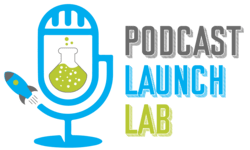Starting a podcast can be a great way to share your thoughts and ideas with a wider audience. Whether you want to discuss your favorite hobby, interview interesting guests, or share your expertise on a particular topic, there are a few key steps you’ll need to take in order to get your podcast off the ground.
- Define your target audience and topic. Before you start recording, it’s important to have a clear idea of who you want to reach with your podcast and what you want to talk about. This will help you create content that is tailored to your audience and that they will be interested in listening to. Consider creating a target audience persona, a fictional representation of your ideal listener. This will help you identify their needs and preferences, which will in turn help you create more engaging content.
- Choose your equipment. Recording a podcast doesn’t require expensive equipment, but you’ll want to invest in a good microphone and headphones to ensure that your audio quality is high. USB microphones, such as the Blue Yeti, are a popular choice among podcast hosts as they are easy to use and relatively affordable. You’ll also need a computer or mobile device to record and edit your podcast, as well as software for editing and publishing your episodes. There are many software options available, such as Audacity (which is free) or Adobe Audition, that you can use to record, edit and publish your podcast.
- Record and edit your podcast. Once you’ve got your equipment and software set up, it’s time to start recording your podcast. This can be as simple as hitting the record button on your microphone and talking, but it’s always a good idea to plan out what you want to say in advance so that your episode flows smoothly. You can record yourself speaking, or use the software to record an interview with a guest. After you’ve finished recording, use the editing software to cut out any mistakes or dead air and add any background music or sound effects.
- Choose a hosting platform. There are a variety of platforms available for hosting your podcast, including Anchor, Soundcloud, and Libsyn. These platforms will take care of publishing your podcast to major podcasting platforms like iTunes and Spotify, as well as providing statistics on how many listeners you’re getting. Choose the platform that best suits your needs, and set up an account.
- Promote your podcast. Once you’ve got your first episode ready, it’s time to promote it. Share links to your podcast on social media, reach out to friends and family to ask them to listen and share, and consider using paid promotion to reach a wider audience. You can also reach out to other podcast hosts and ask to be a guest on their show, which can be a great way to promote your own podcast.
Starting a podcast can be a funhttp://PodcastLaunchLabNow.com and rewarding experience, and with a little hard work and dedication, you can build a loyal audience that will tune in to each episode. Remember to keep your audience in mind as you create your content, and always strive to provide value in every episode. With time, you’ll be able to build a following of listeners who look forward to your next episode.
Happy Podcasting!
Need help starting your podcast?
Schedule a Free Podcast Strategy Call Today: PodcastLaunchLabNow.com


Recent Comments